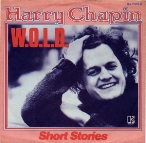Anyone of a certain age will surely agree with the oft over-used expression ‘things ain’t what they used to be’ and when referring to radio will be right.
The B.B.C. is 90 years old this year and back in those days the broadcasters would turn up looking like they’re on the way to a wedding with suit, tie and highly polished shoes. Their patter had to be scripted and then approved as ad-libs were not even considered. Making a comment that wasn’t on the script was near enough a sackable offence. In addition you had to be able to speak the Queen’s English eloquently and have a ‘London’ accent. How things have changed! And, perhaps they needed to.
By the mid-60s things began to change. DJ’s, as they became known, were able to operate their own equipment and begin scripting their own dialogue and for music radio they could even pick their own music, something the pirate radio stations began doing. At the B.B.C. that job still fell to the producer but on the odd occasion the DJ could suggest a song they felt would sound good. By the mid 70s once Radio’s 1 & 2 got into their stride the programmes were jointly compiled by the producer and the DJ. The scripts died away and the DJ had the free range to say what they wanted as long as it wasn’t rude or controversial, but music was still fairly strict. That changed in 1973 when Britain’s first commercial music radio opened in the shape of Capital Radio in London. The DJs could champion their own tracks and had the power to make or break song by the amount of airplay they gave each song. Unlike today, the variety was astonishing especially as the diversity of the music was vast and nothing was really restricted. Back then playing Led Zeppelin and then J.J Barrie was the norm.
All singers needed their songs to be promoted and that job was done by record company people called pluggers. If the plugger managed to interest a particular producer and/or DJ of a song they would quite often invite the artist to come in and talk about the song. This practise is told in song by American singer/songwriter Harry Chapin in a song called W.O.L.D.
Harry died in 1981 in a tragic car accident, but his wife Sandy, who had written propably one of Harry’s best loved song Cat’s In The Cradle, told the story of W.O.L.D. in a 2009 interview. “It’s a very real story in that when Harry was first starting he tended to be his own best promoter. He was very assertive about getting out and meeting people, and getting people to know his music. He had a manager early on, his name was Fred Kewley, and this is just before he started with Elektra Records, he would call music companies and offices, and usually try to get to know the secretaries and the people that he would need to get him to the boss. So he would call up and he would say, ‘This is Fred Kewley, and I want to talk to you about this guy Harry Chapin,’ and he’d go on and on. And one time he called someone and that person said, ‘Hey, wait a minute, I know who this is.’ Someone recognised his voice. He was very energetic, very enthusiastic. He made a point of dropping in and meeting disc jockeys and programme directors as he travelled around the country. As a matter of fact, when we moved to our home in Huntington, which was really helped by the advance from when he signed with Elektra Records, we had this big old house, and absolutely no furniture. To launch his second album he had a big party and invited a whole lot of programme directors and disc jockeys and so forth. So he really got to know them and visited them. W.O.L.D was a composite.”
In reality it was a composite of the disc jockeys he got to know, including Jim Connors who worked at a radio station in Erie, Pennsylvania, and in 1973, became the morning man on WYSL in Buffalo – he had something of a freeform style which endeared him to many listeners. Chapin was very astute and from a marketing perspective he figured out that if you were trying to get disc jockeys to play our song, it would be a good idea to write a song about a disc jockey.
W.O.L.D is a real radio station in southwest Virginia, which went on the air in 1968. It was not the inspiration for the song, but Chapin was probably looking for a universal feel, and chose the letters as a play on the word world.
Many DJs had their own theories about the title. The older DJs thought he was having a dig by indicating it as W-OLD with W being the starting code for east-coast radio station (west coast stations used the letter K) and others thought it was about an oldies station. Either way, it had appeal but, astonishingly, given the airplay it received, it only reached number 36 in the Billboard chart. In the UK it was championed by Noel Edmonds and became Chapin’s only British hit, but did fair slightly better by reaching number 34.
